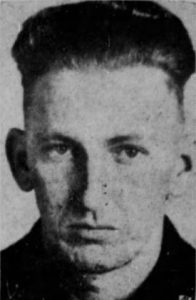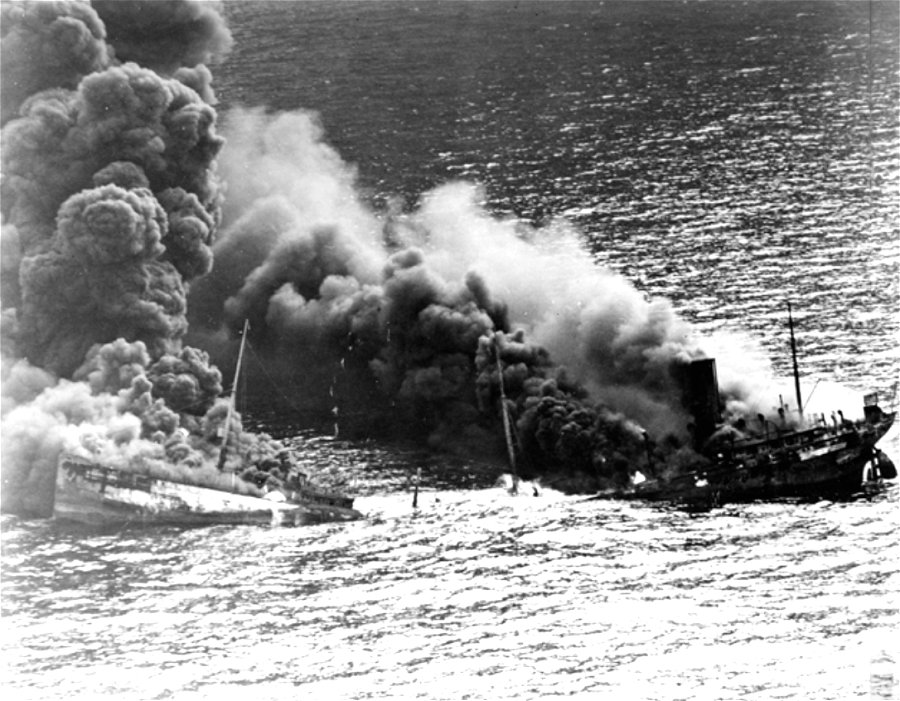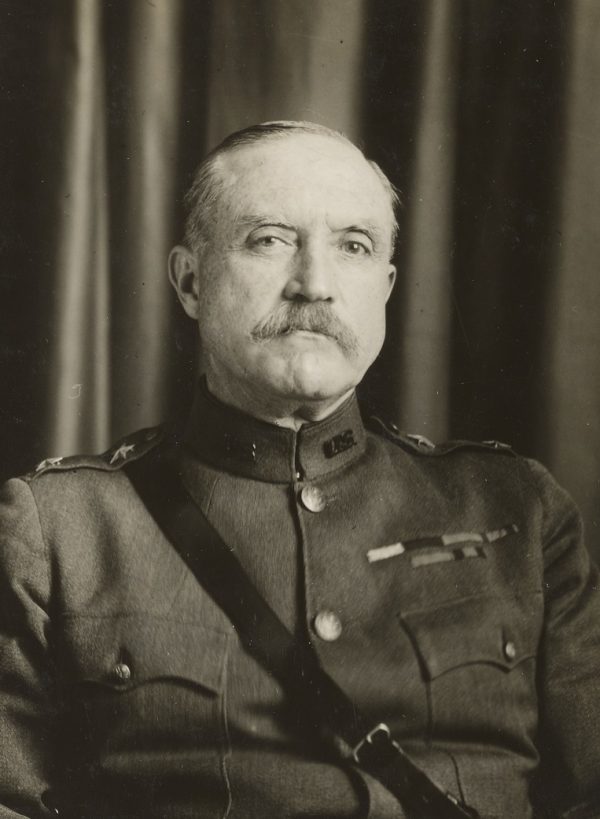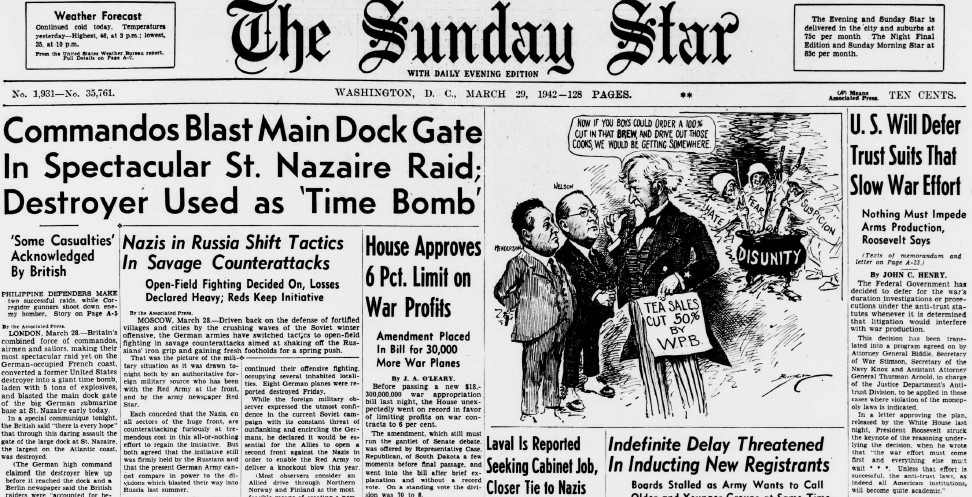World War II Chronicle: March 29, 1942
Click here for TODAY’S NEWSPAPER
This is the “Second Happy Time” for the German U-boat fleet. American anti-submarine warfare tactics haven’t yet caught up with the Kriegsmarine, who has some 80 submarines currently operating off the United States coast and in the Caribbean. This spells disaster for Allied ships like Dixie Arrow, an 8,000-ton tanker traveling from Texas City, Texas to New Jersey and loaded with crude oil (see today’s front page).

Unarmed and unescorted, the tanker’s only defense was zig-zagging up the Eastern Seaboard, but on March 26 the crew of U-71 spotted her and closed in for the kill. Just before 3:00 p.m. Korvettenkapitän Walter Flachsenberg ordered three torpedoes launched, all of which hit Dixie Arrow on her starboard side. The first torpedo killed most of the deck officers, set the tanker on fire, and severely wounded helmsman Oscar G. Chappell. The second and third torpedoes broke the ship in half, dumping nearly 90,000 barrels of burning oil into the ocean. Despite his wounds, Chappell remained at the wheel and steered the ship into the wind, which kept the inferno away from eight trapped shipmates and allowed them to escape. While he helped his crew, Chappell’s actions cost him his life as the flames were now blowing directly at him.
Nearly a century later it is hard not to turn the experience of being torpedoed and sunk by an enemy submarine into statistics; we may know a ships name, tonnage, and how many crew members perished or were rescued, but it is hard to find out little else in a conflict as vast as World War II. One out of every 26 sailors in the Merchant Marine perished during the war, a higher casualty rate than any branch of the Armed Forces. It isn’t often that we will have the chance to honor the sacrifice of the men that risked their lives to get men, weapons, and supplies across the ocean, but we will do our best to highlight their sacrifices when possible.

War Department communique no. 145 on page four… Bio of Lt. Gen. Jonathan Wainwright on page five… Page eight reports the passing of Medal of Honor recipient Maj. Gen. Andre W. Brewster, veteran of many campaigns, including the Indian Wars, Spanish-American War, Philippine Insurrection, Boxer Rebellion, and World War I. He was recommended for brevet promotion for valor during the Battle of San Juan Hill and received the Medal of Honor for saving two comrades from drowning during the Battle of Tientsin. Brewster’s mother is Benjamin Franklin’s great-great-great granddaughter.

Sports section begins on page 27, which discusses Joe Louis’ 21st successful title defense last night.
Evening star. (Washington, D.C.), 29 March 1942. Chronicling America: Historic American Newspapers. Lib. of Congress.
https://chroniclingamerica.loc.gov/lccn/sn83045462/1942-03-29/ed-1/
